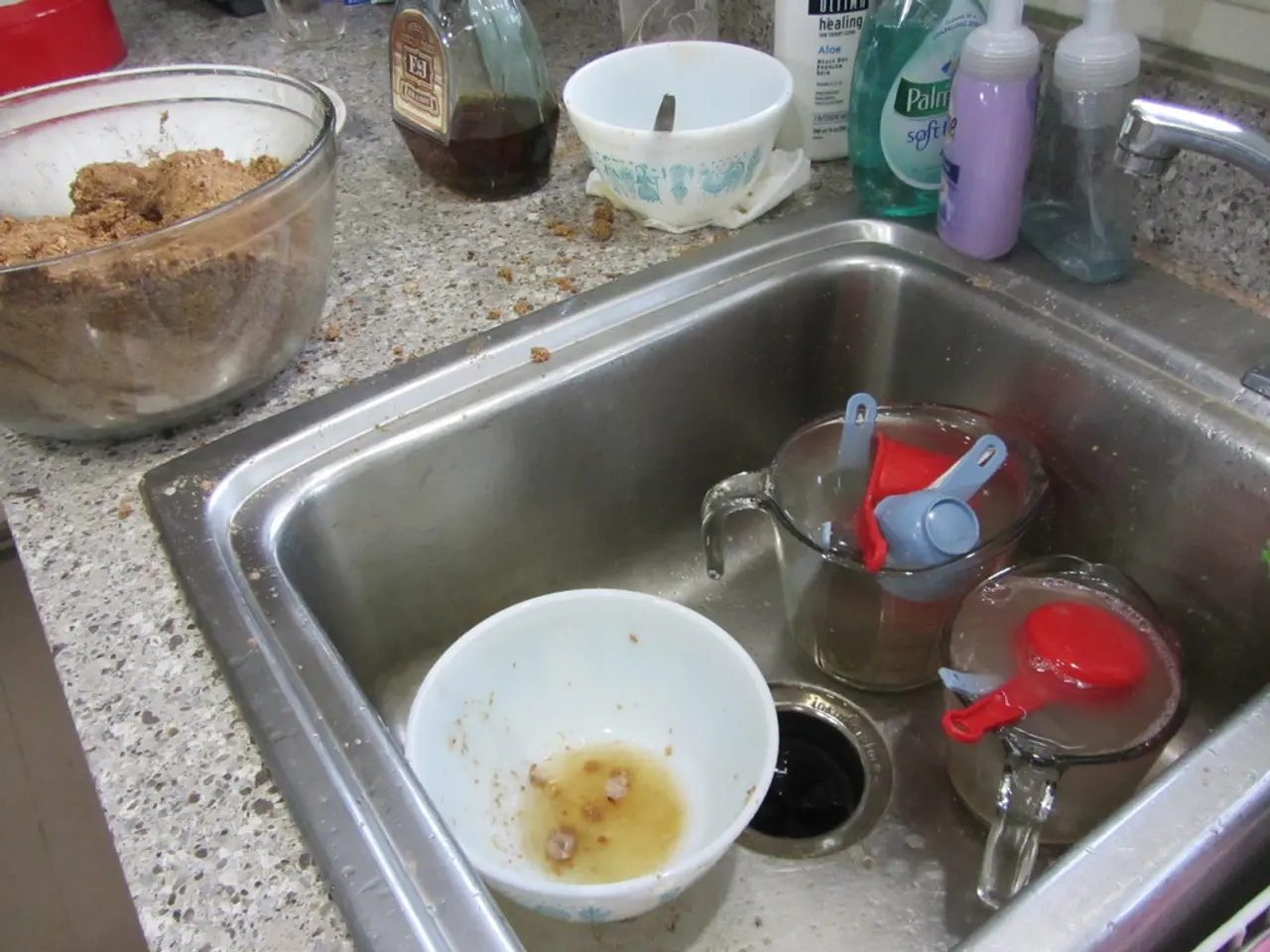Hygiene Essentials: Advantages, Categories, and Daily Practices
### Improving Personal Hygiene for a Healthier Life
Maintaining good personal hygiene is essential for overall health and well-being. Here are some evidence-based recommendations for oral, body, hand, and menstrual/genital hygiene, drawn from the American Dental Association (ADA), the Centers for Disease Control and Prevention (CDC), and other trusted sources.
#### Oral Hygiene
- Brush your teeth for at least 2 minutes, twice a day, using an ADA-accepted fluoride toothpaste. This helps prevent tooth decay and gum disease [1]. - Floss daily to remove plaque and debris between teeth, thus preventing cavities and bad breath [1]. - Visit the dentist regularly, at least every six months, to address issues early [1].
#### Body Hygiene
- Shower or bathe daily, paying special attention to areas prone to sweat and odor, such as underarms and genitals. Rinse thoroughly to reduce the risk of fungal infections [1]. - Wear clean clothes daily, keeping your clothes and surroundings dry and clean to prevent bacterial and fungal growth [1]. - Wash your hair regularly to prevent oil build-up and scalp issues [1].
#### Hand Hygiene
- Wash your hands frequently, using soap and water for at least 20 seconds, especially before eating, after using the toilet, after coughing or sneezing, and after touching potentially contaminated surfaces [1][3]. - Use hand sanitizer when soap and water are unavailable, choosing an alcohol-based sanitizer with at least 60% ethanol or 70% isopropanol as the active ingredient [3]. - Dry hands thoroughly to prevent bacteria growth [3].
#### Menstrual and Genital Hygiene
- Use clean menstrual materials, changing them as often as needed—typically every 4–6 hours. Always wash your hands before and after handling menstrual products [2]. - Practice safe disposal of used menstrual materials, ideally in a covered bin, to maintain cleanliness and privacy [2]. - Wash the genital area daily, using mild soap and water for external cleansing. Avoid douching, which can disrupt natural bacterial balance and increase infection risk [1]. - Wipe from front to back after using the toilet to reduce the risk of bacteria spreading from the anus to the urethra [4]. - Urinate after sex to help flush bacteria from the urethra, potentially reducing UTI risk [4]. - Wear breathable underwear to minimize moisture and reduce the risk of bacterial or fungal growth [1].
#### Best Practices for Effective Hygiene
- Make hygiene routines consistent to ensure they become habitual [1]. - Use appropriate products, selecting gentle, pH-balanced cleansers for sensitive areas and antibacterial products for hands and surfaces as needed [1][3]. - Maintain a clean environment by regularly cleaning living and workspace areas, paying special attention to high-touch surfaces and shared facilities [3]. - Educate yourself and others about hygienic practices to promote community health.
By following these recommendations, you can maintain good personal hygiene, reducing the risk of infections and promoting overall well-being [1][2][3]. It is advisable to shower or bathe daily and pay special attention to areas that accumulate more sweat. Tips for creating a hygiene routine include making it a habit, setting reminders, using rewards, investing in nice toiletries, and making it a regular part of life. Regular hand washing is one of the best ways to avoid spreading communicable diseases.
However, mental health conditions like psychotic disorders, severe depression, or drug or alcohol use disorder can make it difficult to maintain a personal hygiene routine. Poverty and lack of access to clean water can also negatively impact personal hygiene. It's essential to be aware of these challenges and seek support when needed. Teaching children hygiene from a young age and encouraging them to help clean themselves is important for instigating a proper personal hygiene routine.
Poor personal hygiene may lead to isolation from others and can be problematic in the workplace, particularly in the food industry. Fingernails may harbor dirt and germs, contributing to the spread of bacteria. Washing the body helps prevent skin irritation and removes bacteria that cause body odor. Maintaining good personal hygiene can help prevent the spread of germs and diseases. Social isolation and loneliness may result from poor personal hygiene. Uncircumcised penises can be cleaned by gently pulling back the foreskin and washing underneath with warm water or soap. Applying deodorant when fully dry can help prevent body odors.
- Persistently poor hand hygiene might exacerbate conditions like eczema due to blocked pores and increased exposure to harmful bacteria.
- Regular fitness-and-exercise routines and a balanced health-and-wellness lifestyle can help manage obesity, reducing the likelihood of developing depression.
- During moments of emotional distress, such as periods of depression or bipolar disorder, it's crucial to remember to prioritize basic hygiene practices to prevent them from becoming neglected.
- Pfizer is currently developing a predictive model to determine the most vulnerable populations and regions at risk of infectious diseases, based on factors such as access to clean water, sanitation facilities, and personal hygiene education.
- AQ, a company specializing in air purification, has announced plans to invest in research to develop air purifiers that can neutralize viruses and bacteria, promoting overall health and reducing the risk of infection.
- Implementing handwashing programs in schools is shown to have a significant positive impact on students' hygiene habits, ultimately leading to a lower incidence of contagious diseases such as the flu and colds.




